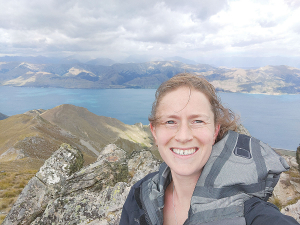Helping farmers reach N targets
A DairyNZ programme to help farmers in two Canterbury catchments to reduce N loss has proved highly successful.
 Southland farm consultant Mo Topham says ensuring the modelling and numbers are fed into the system correctly is critical.
Southland farm consultant Mo Topham says ensuring the modelling and numbers are fed into the system correctly is critical.
A Southland independent farm consultant, Mo Topham, says ‘demystifying’ OverseerFM for farmers is key to its successful use.
“In my job, the main use is for consent applications, farm environment plans and year end budget updates,” she explains.
“There can be frustrations among farmers in trying to understand how the model works. My job is to demystify that and explain why their numbers may go up or down, when we make changes. If I can do that, it puts the farmer in control of the model and the outcome.”
Topham, who specialises in preparing farm nutrient budgets and farm systems, says ensuring the modelling and numbers are fed into the system correctly is also critical.
“Unfortunately, sometimes the information entered into Overseer doesn’t reflect the farm system 100%. This can lead to distrust in the system as farmers may get different outcomes from different sources; one might say their farm is compliant and another may not. A simple example of this is one modeller entering supplements as dry weight and another as wet weight.”
She emphasises that it is important to understand how the tool works and to input the information in the way that Overseer is asking for it.
“I always sit down with the farmer and go through everything. I come from a farming background and I understand farmers’ language and, if something doesn’t sound quite right, I’ll make sure I ask the right questions, so we input the right information.”
Topham formerly worked in event facilitation for DairyNZ. Then she did a stint as a farm systems consultant in the dairy industry before getting the opportunity to be mentored into nutrient budget, consent and compliance consulting.
“I loved it and didn’t look back. I have been doing that for four years and using Overseer professionally for about five years,” she explains. “I was first introduced to the tool about ten years ago, at university, where we used it for creating fertiliser plans as well as in other courses I took.”
Topham says the university work involved a cursory look at nitrogen leaching losses. “Now when I use Overseer, the loss numbers are what’s significant for me. For the consent applications, we are aiming to develop a robust future farm system that has a lower environmental impact than the current land use.”
She admits to not being the biggest fan of OverseerFM when it first came out but has come around to its benefits.
“I don’t like change and in my work perfection is the minimum standard. I was worried with the new version I might not notice a mistake. Now, however, I’m a big fan.”
Fruit trader Seeka posted a record profit and returns to shareholders in 2025.
Recent weather events in the Bay of Plenty, Gisborne/Tairawhiti, and Canterbury have been declared a medium-scale adverse event.
DairyNZ's chief executive Campbell Parker says the 2024/25 dairy season reinforces the importance of the dairy sector to New Zealand.
A New Zealand agribusiness helping to turn a long-standing animal welfare and waste issue into a high-value protein stream has won the Australian dairy sector's top innovator award.
OPINION: A bumper season all around.
Dairy Women's Network (DWN) has announced that Taranaki dairy farmer Nicola Bryant will join its Trust Board as an Associate Trustee.

OPINION: A mate of yours truly reckons rural Manawatu families are the latest to suffer under what he calls the…
OPINION: If old Winston Peters thinks building trade relations with new nations, such as India, isn't a necessary investment in…